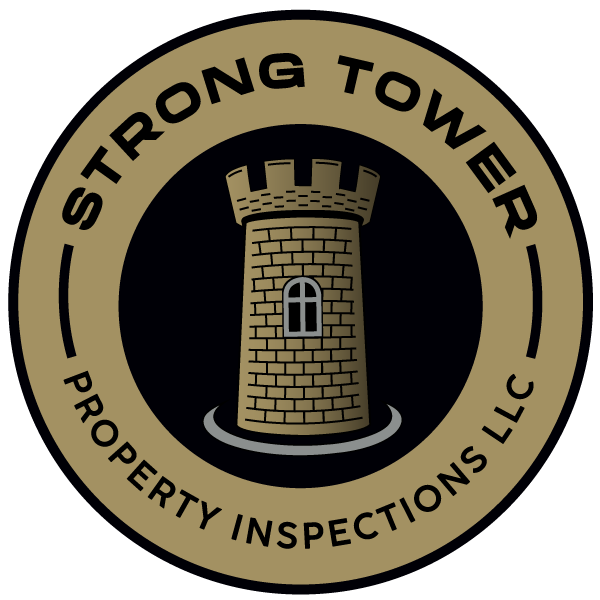Frequently Asked Questions
Strong Tower Property Inspections, LLC is licensed and certified to provide comprehensive home inspection services in Sanford, NC, and surrounding areas.
⇒ Why is getting a professional home inspection important?
Buying a home will most likely be the largest investment you will ever make. It’s important to get a professional home inspection by a trained and certified inspector, because it can discover and document defects that may or may not be apparent to you as a prospective buyer or seller. Such defects can range from simple replacements and repairs, to severe damage or safety and health concerns. It’s important to note, many mortgage companies require a home inspection on a property before approving the home loan.
⇒ How much does a home inspection cost?
The cost of an inspection is not a one-size-fits-all figure. It’s a personalized estimate that takes into account various factors such as the local market, the geographic region, the size of the home, and the scope of the inspection. Before the inspection, we’ll discuss what will be included and what won’t, tailoring the details to your specific needs. This personalized approach will give you a better idea of the cost of your inspection, which will also be outlined in the inspection agreement that you will need to sign prior to the inspection.
⇒ How long does a home inspection take?
The length of a home inspection depends on the home’s age, size, and location. Generally, a home inspection will take between 2 and 3 hours. Adding square footage, outbuildings, and/or ancillary services (such as mold or radon testing) will increase that time. If a home inspection is rushed and only takes around an hour, then it was not thorough enough and shouldn’t be trusted.
Feel free to contact us and we can give you a better idea of the time it will take to inspect your property.
⇒ When should I schedule a home inspection?
A home inspection is typically scheduled after an offer has been made and accepted, but before the closing date. That way, we are able to rule out any major defects that could be dangerous or costly. In rare cases, the inspection can be scheduled after the closing date. This is not recommended, but if this is the case, then you should schedule the inspection for the earliest possible date after closing.
⇒ Should I be at the home inspection?
It is not required for you to be present for the inspection. However, it is highly recommended that you attend so you can receive the most value from the inspection. This allows you to observe the inspection and ask any questions throughout the process. This will also give you a better understanding of the condition of the home and how to maintain it.
⇒ Can a house fail a home inspection?
A professional home inspection is a visual examination and objective assessment of the current condition of a house. A home can neither pass or fail an inspection. A home inspection is not an appraisal and will not determine the home’s market value.
The inspection is specifically intended to describe the homes physical condition and indicate what components and systems may need any repairs or replaced.
⇒ What if the inspection report reveals problems?
A home inspection will identify any issues with the property and will notify you of the severity of any issues found. The goal is to leave you with a deeper understanding of the prospective home, so you can make a sound decision as you continue the home buying process. You need to be fully aware of any issues, risks, or health concerns that may impact your decision.
The inspector’s role is not to tell you if you should buy the house or not, but to help you understand the full cost of the investment. If major problems are found, it can give you the opportunity to negotiate with the seller to make repairs or lower the cost of the property.
⇒ What all is included in a home inspection?
Plumbing
The main water shutoff valve is located. Faucets and showers are checked for visible leaks, and the water pressure is tested. The types of pipes used are identified, if visible.
Electrical
Wires are identified, all outlets are tested and verified that there are GFCI’s installed where needed to protect from electrical shock. The electrical panel is inspected for safety issues and fire hazards.
HVAC
Heating, Ventilation, and Air Conditioning system. Determine the age of the furnace and/or air system, whether or not they function properly, and possibly recommend repairs or maintenance needed.
Water Heater
Identify the age of the water heater and check that it has been properly installed. Determine the condition of the unit and possibly give an estimated remaining life span.
Laundry
Inspect the mechanical exhaust system for the clothes dryer. A poorly ventilated dryer exhaust can be a serious fire hazard. The clothes dryer must vent directly to the outdoors, unless it is a ventless dryer.
Fire Safety
Test the smoke detectors and ensure that any garage walls present have the proper fire ratings, and are undamaged. Inspect the fireplace for proper installation and maintenance.
Bathrooms
Check toilets & tubs for visible leaks and proper ventilation, to prevent moisture related issues. Test toilets to see they’re flushing, run showers to see they spray and properly drain.
Attic
Check for any structural damage and for proper ventilation, if available. Identify any leaks from roof and inspect the insulation to ensure proper placement and ventilation.
Garage
Inspect the garage foundation, windows, ceiling, and framing. Test the garage for proper ventilation and be sure the doors operate properly. Check and test the outlets electrical system.
Roof
If accessible and visible, inspect the roof for any defects, including attic shingles, flashing and fascia. Check all gutters to be sure they are secure and look for defects in chimneys and skylights.
Exterior
Inspect all exterior walls for damaged or missing siding, cracks, or excessive soil contact which can be an invitation for pests. Check the foundation for possible cracks or settling.
Grading
Check to ensure that the ground slopes away from the house, which prevents water from entering the house or causing damage to the foundation. Identify any problematic, soggy areas.

Contact Us
Strong Tower Property Inspections, LLC provides certified and professional inspection services in the following areas throughout North Carolina:
Raleigh, Pinehurst, Southern Pines, Sanford, Apex, and surrounding areas
Have more questions?
Feel free to call, email, use the contact form, or schedule an inspection. We look forward to the opportunity to work with you.
Phone: (984) 270-4101
Email: jon@strongtowerpi.com

